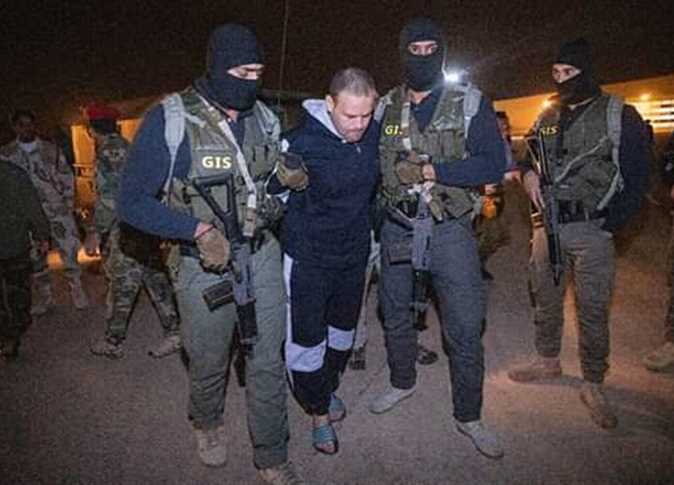
The Libyan National Army announced early on Wednesday that it handed over to the Egyptian General Intelligence Service (GIS) one of its most wanted terrorists, Hesham Ashmawy.
The transfer came during a visit by GIS head Abbas Kamel to Libya’s city of Benghazi, where he met with Libyan National Army Commander Marshal Khalifa Hafer.
In early October 2018, the General Command of the Libyan Armed Forces announced Ashmawy’s arrest during a security operation in the city of Derna, where he was wearing an explosive belt at the time.
Egypt’s President Abdel Fattah al-Sisi saluted the intelligence officers who participated in the extradition of the wanted terrorist from the Libyan National Army.
“I assure that the war against terrorism has not ended and will not end before we recover the right of every martyr died for the homeland,” Sisi wrote on his official Facebook page.
Ashmawy, a dismissed army officer, has become a militant in recent years and is likely to have been involved in the Oasis attack on police forces, leading the government to deem him among their most wanted terrorists.
He is especially wanted in Egypt because of his involvement in 17 terrorist operations which killed dozens of army and police officers. The most important of these was the targeting of 101st battalion in al-Arish, in February 2015, which killed 29 Egyptian troops and injured 60 others.
Born in 1978, Ashmway’s full name is Hisham Ali Ashmawy Mosaad Ibrahim. In 1996, at the age of 18, he joined the Military Academy at a time when former President Hosni Mubarak ruled the country. Initially part of the infantry, he went on to join the Commandos.
A central incident in Ashmawy’s records is a verbal altercation that took place between him and a mosque preacher at his training camp after the preacher inadvertently misrepresented the Quran, which rose suspicions that Ashmawy might have been an extremist. He was placed under surveillance by Military Intelligence, who probed his reasons for scolding the preacher.
Ashmawy was then moved to an administrative job.
In 2006 a relative testified, according to Reuters, that a friend of Ashmawy’s was arrested and died in custody, forcing a drastic change in his behavior. A year after, Ashmawy was referred to military court after being warned not to repeat provocative words against the army.
In 2011, the Military Court ruled that he would be dismissed from service. He then began forming a terrorist cell with four police officers also dismissed from service for their misconduct. This cell was later joined by some Takfiris.
Ashmawy then worked in trade and export and import, trading clothes and spare car parts. In 2012, he joined the Ansar Bayt al-Maqdis terrorist group, according to security officials, eventually leading the cell and training members to fight.
By 2013, Ashmawy was accused of trying to assassinate former Interior Minister Mohamed Ibrahim. He was later accused of planning and participating in the July 2014 massacre of the Farafra checkpoint in which 22 army recruits were killed.
In June 2015, Ashmawy’s name appeared on the scene again after the assassination of Attorney-General Hisham Barakat. Appearing on his own, he broadcasted an audio clip and identified himself as the Emir of the Morabetoon organization.
Edited translation from Al-Masry Al-Youm




